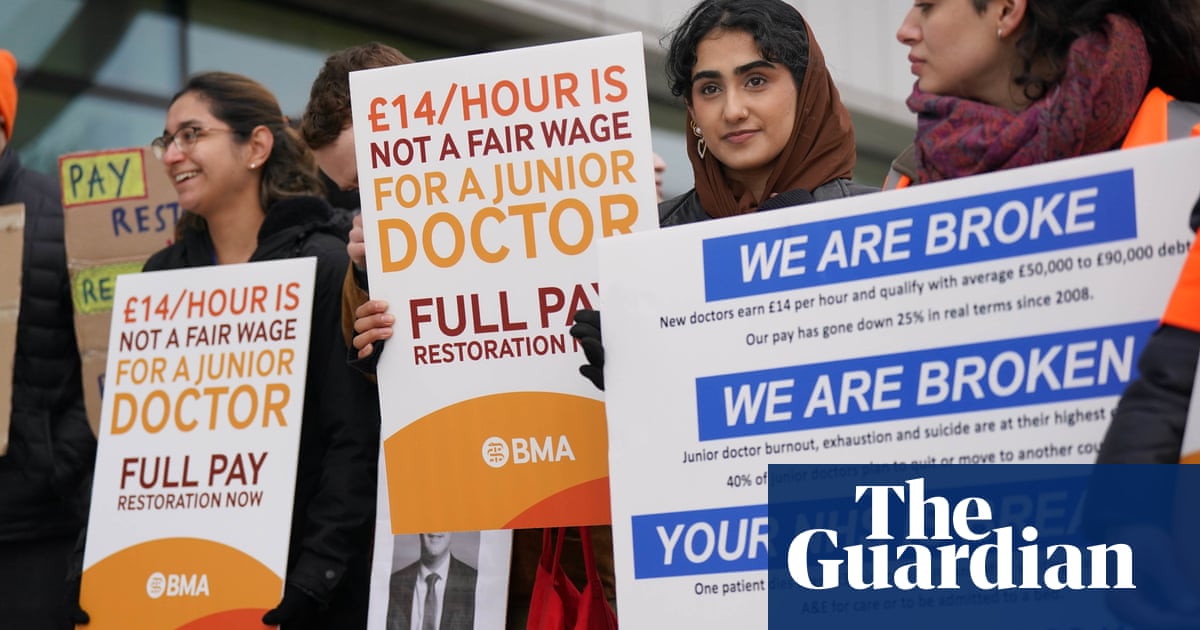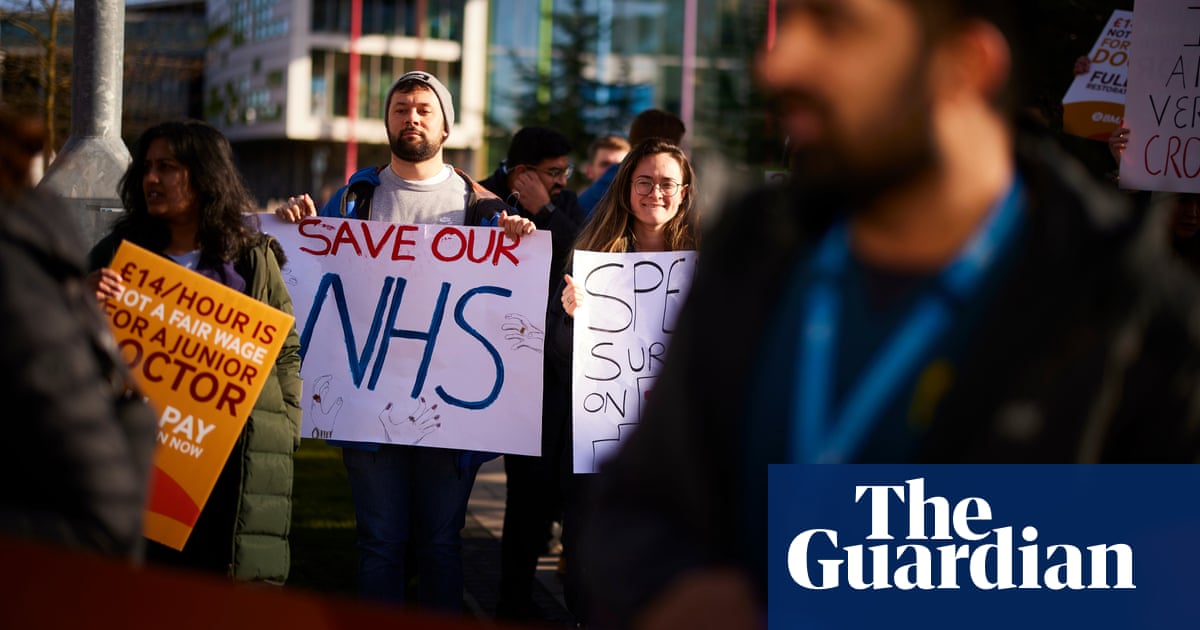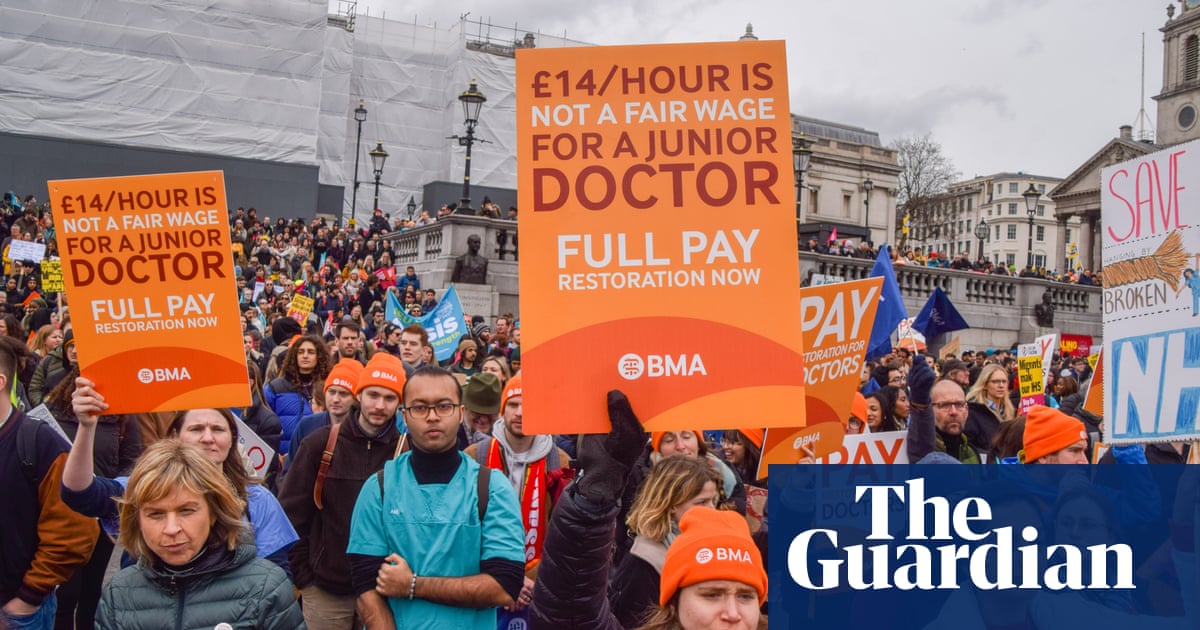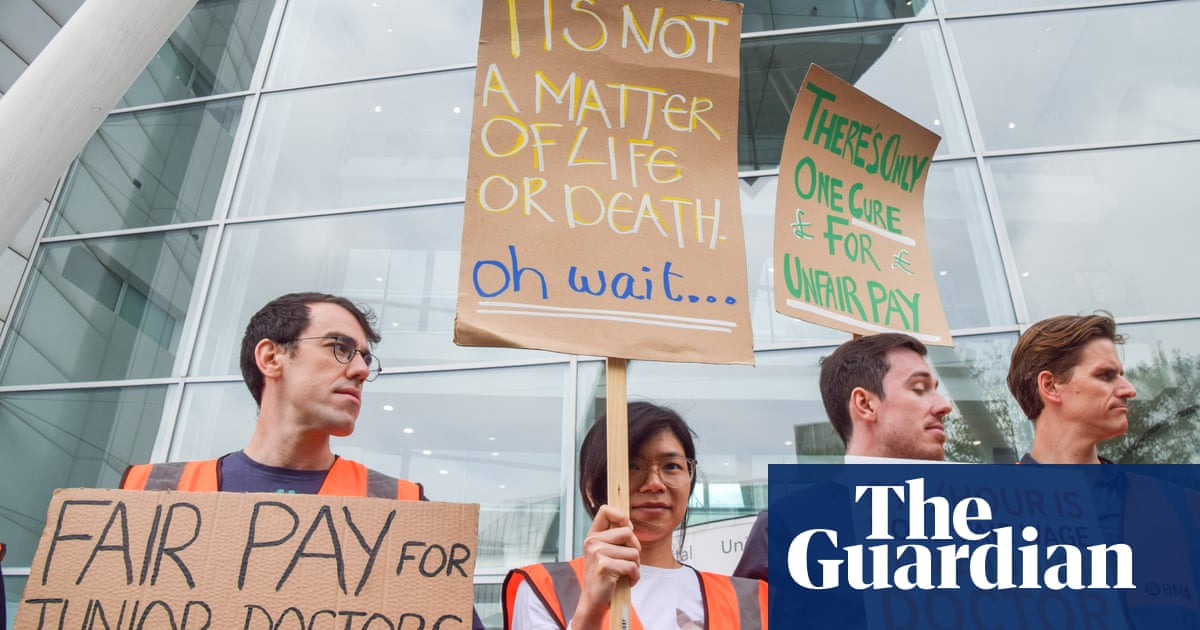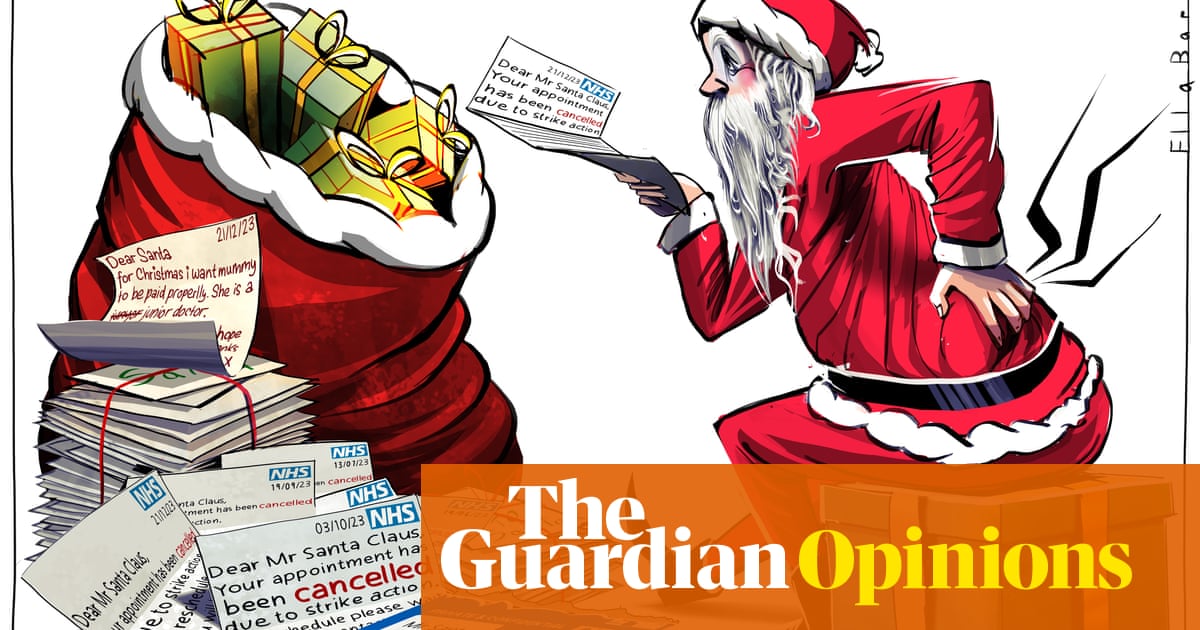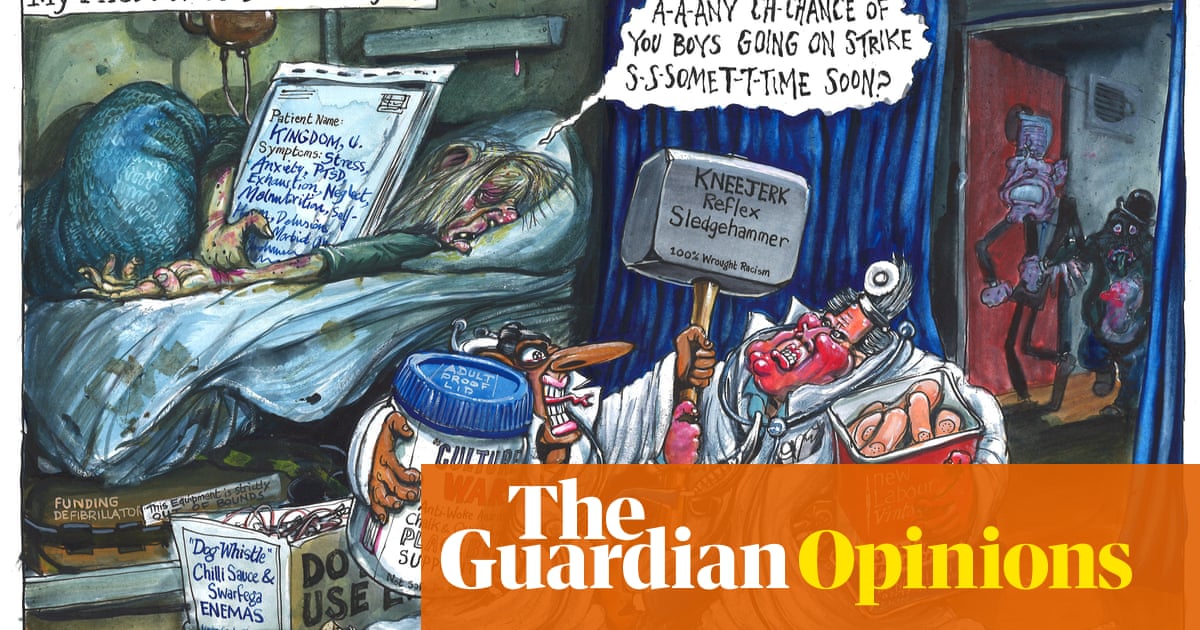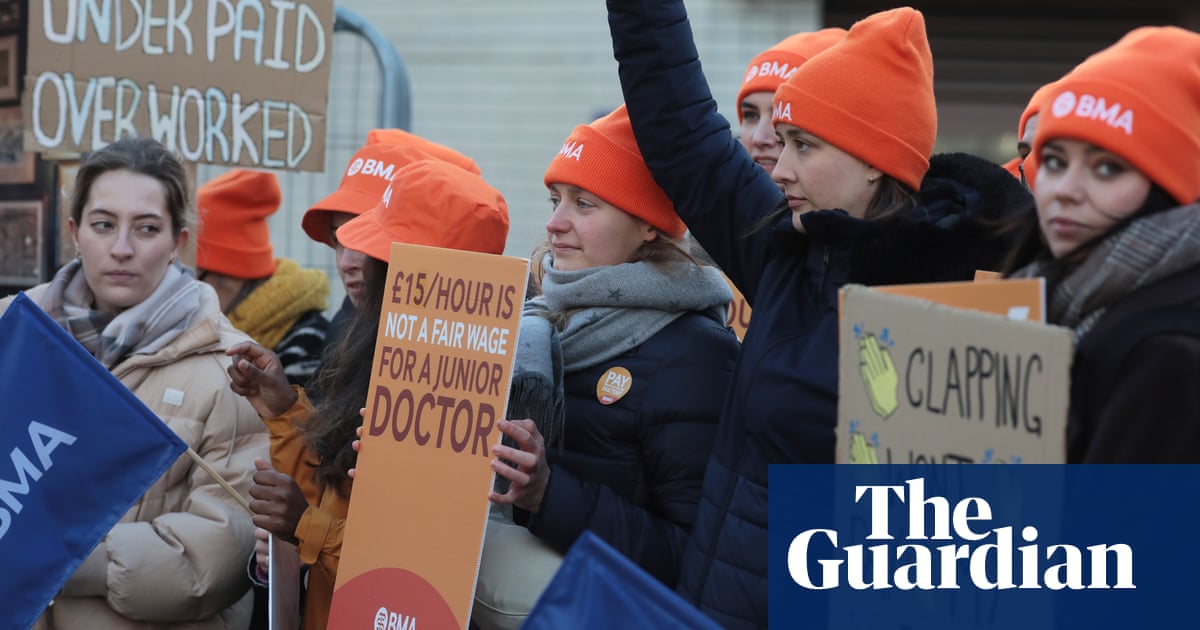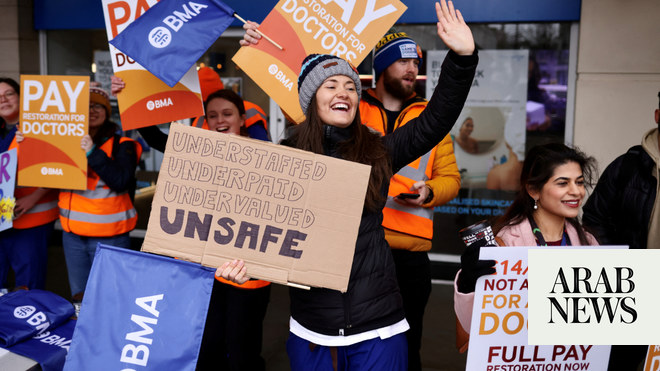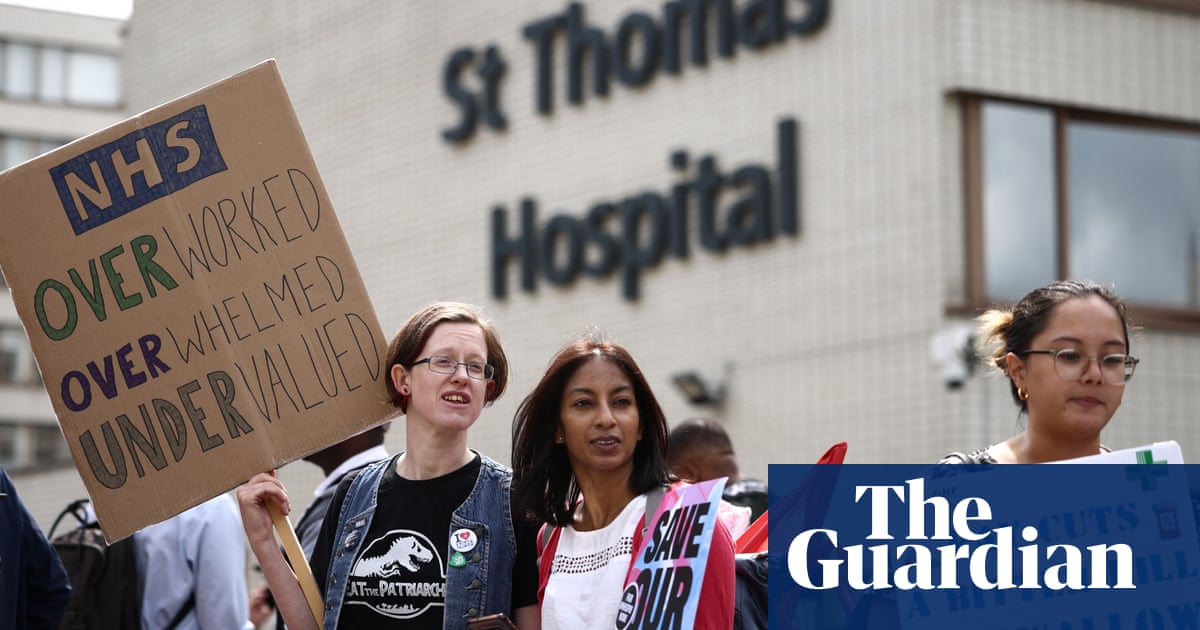
‘They threw us to the wolves during the pandemic with inadequate PPE, and now they’re leaving us out to dry during the cost of living crisis,” said Dr Robert Laurenson, a trainee GP and co-chair of the British Medical Association junior doctors’ committee.
Laurenson was one of many doctors, nurses and other healthcare workers demonstrating outside St Thomas’ hospital in London on Thursday morning. It was the first of five days of industrial action by junior doctors in England, the longest strike of its kind in NHS history. Those on the picket line spoke of their disappointment with the government, as they went on strike for better pay, improved working conditions and adequate resources.
As Laurenson spoke, the crowd near Westminster held signs with messages such as “saving lives, but no savings”. They chanted “full pay restoration”, “5% won’t pay the rent” and “Hey Rishi, you’re so tight, you’re so tight you make us strike!” Many passing cars tooted their horns in support, prompting widespread cheering from the enthusiastic, if frustrated, group.
The pay rate of £14 an hour for junior doctors, Laurenson continued, went against the Conservatives’ own pledges for a high-skill, high-wage economy. “We have suffered the consequences of the financial crisis and it seems that every year there’s a new excuse for the government to cut our pay further,” he said. “The government has obliterated all morale. They’ve obliterated any sense of relationship that they could have with us, and really they need to make massive strides to rebuild that relationship, or doctors will just continue to leave.”
He was far from the only one with concerns. James and Rav, both young junior doctors with the HCSA union, expressed frustration with pay and the government’s refusal to do anything “credible” about the situation. James, who works in imaging, said that £14 an hour was simply not enough for doing “life-changing work”. Rav agreed. “Healthcare is more challenging,” he said, and “the pay doesn’t match the sacrifice”.
Both expressed frustration that under the current government, “the public sector always has to take the fall”, being forced to “accept year on year decline”. If the health secretary, Steve Barclay, was prepared to offer a serious pay rise, they said, they would certainly be prepared to consider it and negotiate. But ministers “don’t want to get round the table”, Rav said. “If they did, they would make more credible suggestions.”
Other healthcare staff were vocal about their solidarity with junior doctors. Mark Boothroyd, an A&E nurse at St Thomas’, said all healthcare workers were fighting the same fight – “they’re not paying any of us”. He said working in A&E seemed to “get worse every month”, with co-workers having to take time off with work-related stress or leaving because they had better offers to work elsewhere.
The NHS was in a “permanent winter crisis”, he continued, as workers found themselves constantly facing a situation of not having enough surgical beds, and long queues of patients. Boothroyd added that the cost of living crisis had meant a surge in mental health crises, which the department was struggling to cope with without adequate pay, staff turnover and resources.
“We love the work we do,” said Anna, a healthcare assistant. But “it’s painful to see how we are running the ward with not enough resources”. A pharmacist, who wished to remain unnamed, stated that in her 12 years in the NHS she had never seen a situation so bad. The government “don’t get it”, she continued: “We’re here because we care; they don’t.”
There was general consensus among all healthcare staff that Rishi Sunak’s suggestion of a 5% pay rise was grossly inadequate. Two nurses, who wished to remain unnamed, called the offer a “tick-box exercise”. One suggested that the rise would be “given and taken in the same payslip”.
As tensions increase between the strikers and ministers, who have said they are not prepared to negotiate until the strikes are called off, Laurenson’s final message was a warning about the future of the NHS if a new approach was not taken. “Their current prescription,” he said, “is toxic, and it’s going to fail.”




